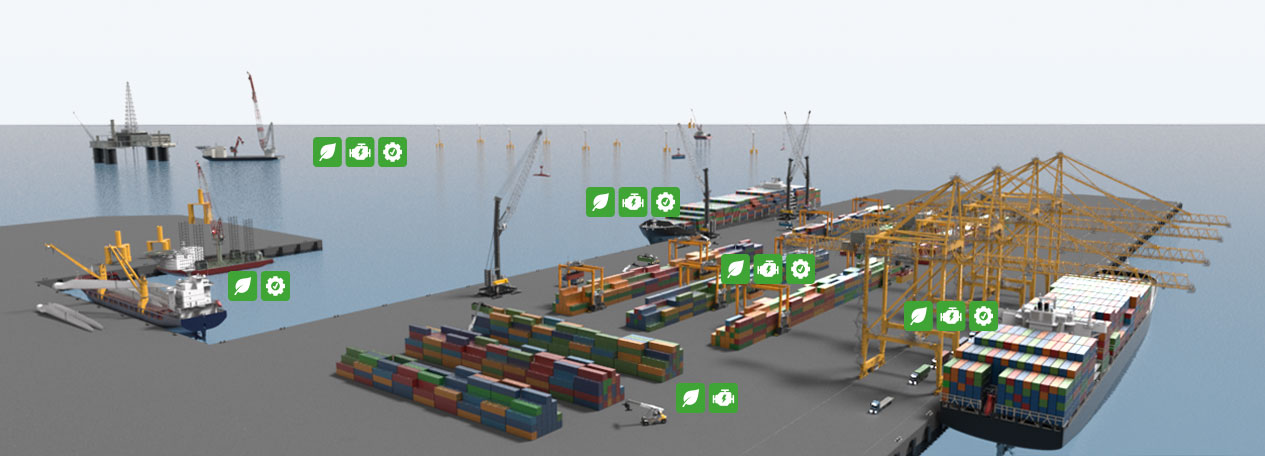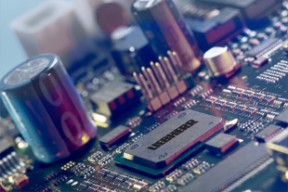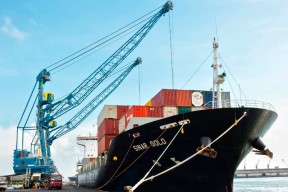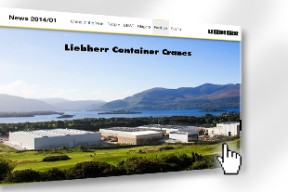Green technology
As the cargo handling industry is evolving, so are the needs for efficient equipment and increased handling performance. In addition, no manufacturer can reject the demand for sustainable, environmentally sensitive operation and the call for low-emission cargo handling cranes. The development of green technology and products is a matter of particular concern for Liebherr.
A summary of the full economic and environmental rewards of all our green initiatives is given below:
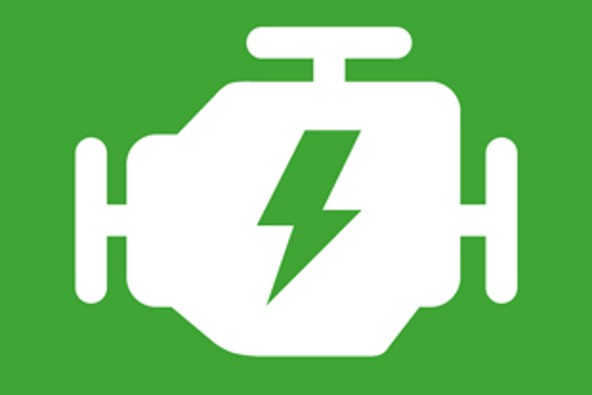
The prime mover in combination with the power transmission is the centrepiece of every crane. Liebherr maritime cranes can be equipped with a diesel engine and/or an electric drive system, exactly adapted to every application.
The Litronic crane control system automatically calculates the minimum required rpm (revolutions per minute) of the diesel engine depending on speeds and loads.
- Without any impact on operational output a notable economisation of the diesel consumption is achieved.
- A further side effect of the low rpm is the reduction of the noise level.
Liebherr maritime cranes are equipped with the latest generation of diesel engines. All engines comply with the exhaust emissions standards according to EU stage IV or EPA Tier 4 final.
- The Liebherr fuel injection system CRS (common rail system), its ECU (eco control unit) and the SCR (selective catalytic reduction) play a noticable role in the reduction of NOX emissions.
- Environmental impact, fuel consumption, air as well as noise pollution are reduced to a minimum.
Engine downsizing is the use of a smaller engine that provides the power of a larger engine, through the use of recent technologies.
- Liebherr maritime cranes use in-house developed and application-specific engines.
- By adding a boosting device (Pactronic), Liebherr provides a powerful engine with similar performance to a much larger engine, but with much improved efficiency and reduced carbon emissions.
All main gears are operated in closed hydraulic circuits.
- The hydraulic system is unaffected by environmental conditions.
- The reverse power during deceleration and lowering is reused for other main movements and/or auxiliary supply (e.g. cooling, heating, etc.). A reduced fuel consumption is the result.
- Less hydraulic oil is necessary (up to -75%).
The entire range of Liebherr maritime cranes can be equipped with an electric main drive – for more environmental friendliness.
- Zero exhaust emissions.
Liebherr develops biodegradable oil especially for its own product line. Oil of this kind does not pose any threat to the environment and ensure clean recycling.
- Long service life especially in combination with spectrographic oils analysis techniques.
- Reduced operating costs and reduced fuel consumption.
- Extended life time of components.
This hybrid drive system enables greater handling capacity with low fuel consumption thanks to an innovative energy-storage system.
- Reduced fuel consumption (up to -20%).
- Reduced CO2 emissions (up to -30%).
- Reduced noise.
Downloads
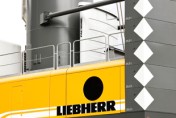
Hybrid drive
Pactronic combines increased handling capacity with decreased energy consumption.

Environmental considerations have been implemented in the design of all maritime products, starting right from the scratch. Quality standards are reached by using materials whose characteristics can be combined to achieve an optimum of synergy with regards to design efficiency and longevity.
All structural main parts are detailed analyzed by finite element calculation.
- Maximised life time.
- Minimised dead weight.
- Less energy usage in operation.
Corporate sustainability is firmly anchored in our business.
- All structural components of the crane are recyclable.
Liebherr maritime cranes offer a special protection package for use in areas with strict noise level requirements. This includes flexible suspenion system of hydraulic blocks, pipes, hoses and all winches.
- With the reinforced soundproofing of the machine room, further noise reduction of up to 50 percent is achieved.
- Noise power level reduction of 3.6 dB(A).
Operation without a loss of productivity is also possible when it is dark. High-performance LED headlights at the boom and tower provide optimal lighting.
- LED lights consume about 50 percent less energy than conventional light systems.
- LED technology do not contain any heavy metals or other environmentally hazardous substances.
- Longer lifetime and less waste are further advantages.
Downloads
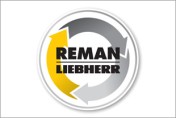
Reconditioning instead of disposal
Liebherr offers value for money reconditioning services for used key components (e.g. drive units, pumps, etc.)
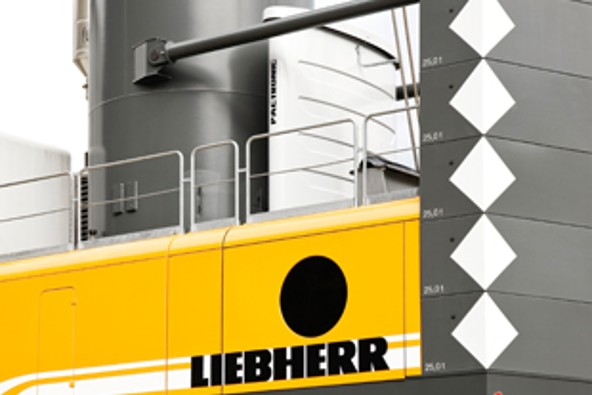
We aim at all times to fulfil our responsibility to society in general and to the environment. As a family-ownded company active throughout the world, we carry considerable responsibility for society and the environment. We are convinced that we shall only achieve long-term success if we remain aware of this responsibility in all your activities.
Protection of the environment is of special importance in our business activities. It means that our products and the processes used to manufacture them must be safe, efficient and environmentally acceptable.
Liebherr core values: read more
Downloads
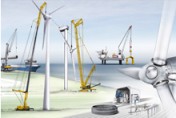
Special wind energy
Liebherr is a strong partner for the wind energy industry. We offer tailored solutions for various requirements.

Different analytical tools show the port operator the potential for improving their cargo handling efficiency with the existing handling assets. In addition, automisation systems support the driver. That, in turn, leads to more efficiency and a greener footprint at the end of the day.
By installing the SmartGrip, the handling rate can be increased by up to 30% as the system utilises the grabber capacity in full.
- SmartGrip prevents overload and its effects on the crane's structure.
- Time and fuel saving.
Cycoptronic anticipates the path of the load and balances out any pendulum movements even before they develop.
- No compensation movements initialised by the driver are required.
- Less energy usage in operation.
One system, two cranes and only one crane operator: Sycratronic brings several cranes together as one functioning unit.
- Faster movements when using multiple cranes for tandem lifts.
- Less energy usage in operation.
Ideal positioning of crane and un/loading locations in relation to vessel hatches.
- Improved operation economy.
- More turnover.
- Reduction of energy usage and air pollution.
The LiDAT smartApp supports port terminals in analysing their cargo handling processes with the goal of making operations more environmentally friendly and more cost efficient.
- The crane can reach its full potential by optimising the logistics chain.
- Active reduction of non-productive operating hours minimises the impact on the environment and maximises the resale value.

